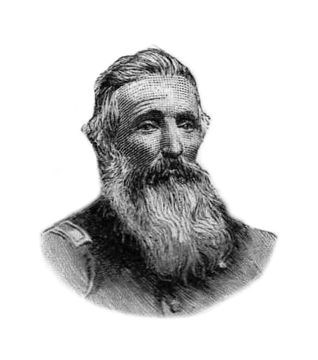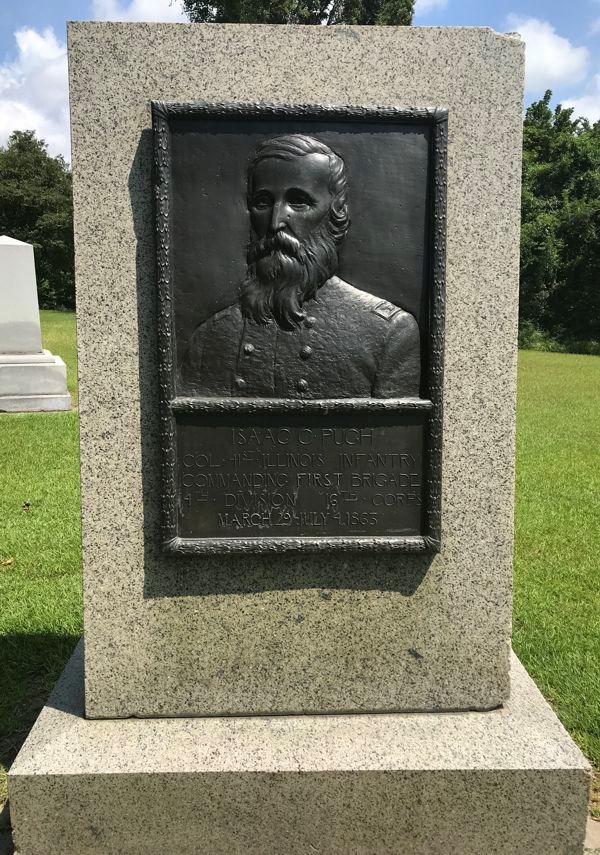
History of the Grand army of the republic, Beath p. 37. In January 1863, the 41st Illinois Infantry was reassigned to 1st Brigade, 4th Division, 16th Army Corps, located in Memphis, Tennessee, and colonel Pugh was promoted to command the brigade. As Grant's army crossed the Mississippi River at the end of April, Pugh's brigade was still held in reserve back in Memphis until on May 17, when the embarked on steamers down the Mississippi River to Vicksburg. After a brief interruption by rebel guerrillas on their journey, Pugh's brigade disembarked at Young's Point, Louisiana, on May 19. Receiving orders to march to Bower's Landing for Grand Gulf, Pugh's men were issued rations and ammunition and began to their march only to receive word that William T. Sherman's 15th Army Corps had arrived at the outskirts of Vicksburg the previous night and captured the hills north of the city. Colonel Pugh's men turned around boarded steamers that moved them up the Yazoo River, arriving at Snyder's Bluff and Pugh's tired brigade marched into the former Confederate defenses north of Vicksburg and remained there until May 24. After General Grant's assaults to take Vicksburg failed, it was determined to reduce the city by siege. Grant worried about an attempt by the Confederate army to break out of the trap. Pugh's brigade was ordered to the southern part of the line to hold the Hall's Ferry Road and deny the Confederates an escape route. It took his men two days to march from Snyder's Bluff to Hall's Ferry Road, where his men dug in and held this portion of the siege lines until the Confederate's surrender on July 4, 1863. When the siege ended, General Grant ordered the majority of the Federal army to advance toward Jackson and contend with Joseph Johnston's Confederate forces. During the siege of Jackson, brigadier general Jacob Laumen, in command of the 4th Division, ordered colonel Pugh's brigade to assault the part of the Confederate earthworks on the southern portion of the Jackson. Marching over open ground, Pugh's brigade was shattered and fell back. Isaac Pugh would continue to serve off and on as brigade commander and lead the 41st Illinois Infantry before he was mustered out of service in August 1864. For his services during the war, Pugh was received a promotion to brigadier general by brevet. After the war, Pugh served as the mayor and postermaster of Decatur before his death in 1874 from a lifelong prolonged ailment contracted during the Mexican-American War. 
NPS Photo Colonel, 41st Illinois InfantryCommanding the First Brigade, Fourth Division, Sixteenth Army Corps (attached to Thirteenth Army Corps), March 29 - July 4, 1863. Sculptor: T.A.R. Kitson Erected: September 1916 Location: At the corner of Wisconsin Avenue and Autumn Drive, 350 yards south of South Confederate Avenue. |
Last updated: November 9, 2019
